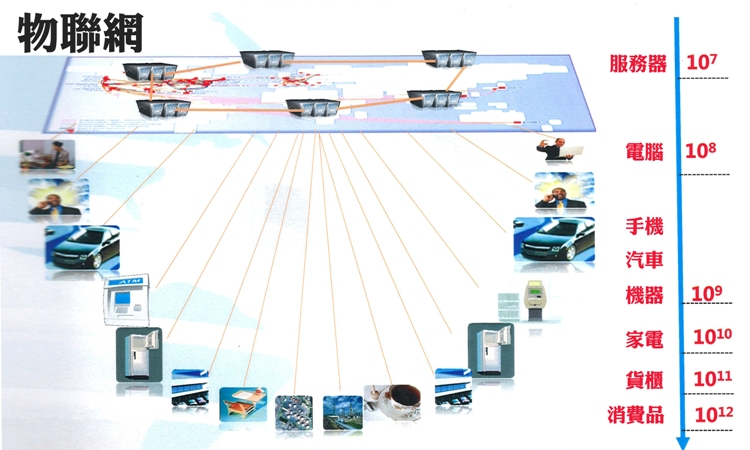|
|
| The research project on the Internet of Things headed by UM Rector Wei Zhao in his capacity as the project’s chief scientist has been approved by the Ministry of Science and Technology as a project under the “973 Programme” |
The term “Internet of Things (IOT)” made its first appearance in a report issued by the International Telecommunication Union in 2005. According to the report, networks not only can connect people and allow people to obtain information about objects, but also can realize the communication between objects. When technologies are ready, IOT will have a sweeping influence on the world. By then, almost anything one can conceive of can be connected to a computer, from the most state-of-the-art satellites to a most mundane coffee machine.
A novel concept, IOT is a worldwide focus of interest. China has already identified “IOT” as a component of the “12th 5-Year Plan”. In 2009 Chinese Premier Wen Jiabao put forward the idea of “sensing China” and explicitly encouraged the development of “IOT” technology. In the same year, Japan, whose high-and-new-tech industries are highly developed, devised a strategy known as “i-Japan”. In 2010 Chinese President Hu Jintao increased the profile of IOT to an unprecedented degree when he instructed attendees of the 15th conference of the Chinese Academy of Sciences and the 10th conference of the Chinese Academy of Engineering to “accelerate the development of IOT”.
A UM-headed “973 Project”
It is at this very crucial juncture that the University of Macau (UM) decided to launch research in this field.
In March 2010, a team led by Prof. Wei Zhao, the rector and a chair professor at UM, submitted an application to the Ministry of Science and Technology of the People’s Republic of China for funding under the “973 Programme” category for the project, “The Study of the Fundamental Theories and Design Methodologies on the Internet of Things”. The majority of the 30 team members are from UM, with the rest coming from the Chinese Academy of Sciences, Tsinghua University, Tongji University, and East China Normal University. Through several rounds of rigorous evaluation, the application was approved. The “973 Programme” is otherwise known as the “National Key Fundamental Research Development Programme”. It is launched by the Chinese government in March 1997, hence the name “973”. The strategic objective of this programme is to address major scientific issues encountered in the economic and societal development of China, thereby providing technological support for the country’s long-term development and gaining a head start in the fierce international competition.
A Team with Unparalleled Advantages
UM enjoys some unparalleled advantages in carrying out IOT research. First and foremost, Prof. Wei Zhao, rector of UM and chief scientist of this project, is a world-renowned expert in the field of IOT. During his tenure as the director of the Division of Computer and Network Systems at the National Science Foundation of the United States, he initiated the first IOT research programme in the US and was in charge of approving funds for the first projects.
Besides Prof. Wei Zhao, the team consists of more than 30 other world-renowned experts, including one academician, three chair professors, five members of The Institute of Electrical and Electronics Engineers (IEEE) and The American Association for the Advancement of Science (AAAS), and three winners of the National Outstanding Young Scientist Award. These experts specialize in various fields, such as sensor network, real-time system, telecommunication system, software system, electric power system, and so on. The composition of the team represents the highest IOT research level in China.
This project, by far the highest-level IOT project in China, will not only go a long way towards enhancing UM’s research capability, but also offers a chance for UM to leave a mark on Macao, China and even the entire human society in economic, cultural, scientific, technological, and cultural arenas.
(This article was published in the Macao Daily News at B03 on 11 November, 2010)

